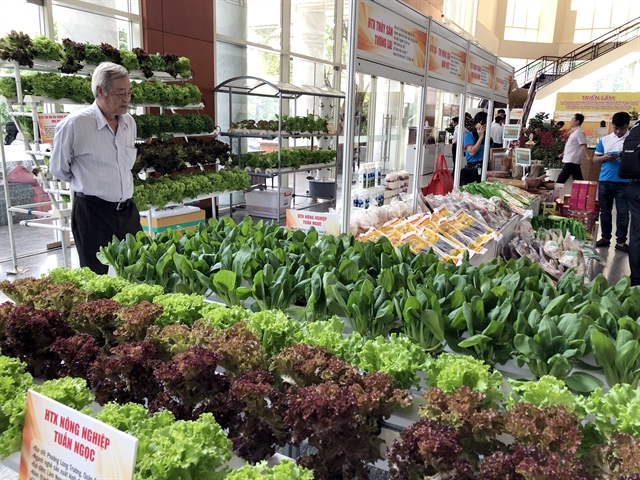HCM City has achieved positive results in the implementation of its collective economic model, with an increase in the number of co-operatives and their quality.

HCM City has achieved positive results in the implementation of its collective economic model, with an increase in the number of co-operatives and their quality, according to its People’s Committee.
Speaking at a meeting on Tuesday to review 15 years of implementation of the Party Central Committee’s resolution on continuing to reform, develop and improve the effectiveness of the collective economy, Le Thanh Liem, deputy chairman of the People’s Committee, said the number of co-operatives and unions of co-operatives has increased significantly over the past years to reach 2,097; 612; and six by the end of last year.
They operate in various sectors, including services and trading, transportation, environmental hygiene, agriculture, industry, craft, and credit, he said.
Over the last 15 years the city's collective economy has asserted its key role in socio-economic development, he said.
“The number of co-operatives and unions of co-operatives with working capital in the hundreds of billions and thousands of billions is rising. Many have expanded across the country and export their products to many markets.”
However, there are still limitations in developing the collective economy, he said.
Most co-operatives are small with limited funds, lack business strategies, have poor management compared with other economic sectors, and are disadvantaged in the integrating economy, he said.
In the next decade the city would focus on developing the new-style co-operative model, he said.
In 2021-30 it targets the setting up of 300 co-operatives and five unions of co-operatives, he said.
The sector is expected to achieve annual growth of 7 per cent, account for 0.6 per cent of the city’s economy, and create 30,000 jobs each year, he said.
The city also seeks to increase the ratio of co-operative leaders with college and university degrees to 60 per cent, he said.
To achieve these targets, the city will implement a number of measures such as increasing the capital of the City Cooperative Member Support Fund to VND2 trillion (US$86.17 million) by 2030.
It will continue to connect credit organisations and co-operatives, provide training to co-operative managers and help promote their products and improve their technologies.
Diep Dung, Saigon Co.op chairman, said the city should help co-operatives access finance and land.
With co-operatives expanding, the Government should amend the 2012 Co-operative Law to dovetail with their current development status, he said.
Nguyen Thien Nhan, Secretary of the city Party Committee, said land and capital are two difficulties faced by co-operatives for a long time. These have not been resolved satisfactorily, making it hard for the collective economy to achieve a development breakthrough.
Therefore, departments and sectors need to advise the People's Committee and the Department of Planning and Investment to make five-year plans for collective economic development in each sector, including agriculture, transportation, environmental hygiene, credit funds, housing and others.
They should come up with solutions for difficulties faced by co-operatives related to the use of agricultural land and borrowing from banks for production, buying machinery and building facilities, he said. — VNS





